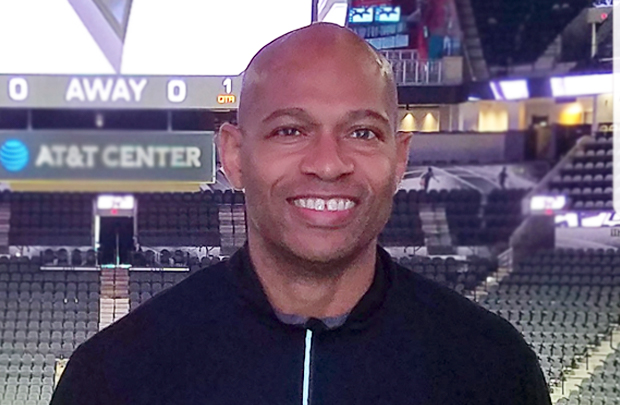
Michael Graves is a permanency worker in Oklahoma. He’s been on the job less than a year, but in that short time inspired a family and a CASA volunteer to sing his praises for the support he provides to both foster parents and birth families.
The CASA volunteer wrote: “It is a privilege and an honor to work with Michael Graves. He tells the birth parents they have a team that supports them that wants them to be successful. He always says if you need anything just call me. He means this. He wants the birth parents to succeed. He listens. He cares. He has empathy. He is transparent. No one has to guess where things are headed because Mr. Graves tells it like it is.”
Michael Graves talked about how he works with foster and birth parents with us.
Before becoming a caseworker, you were a homicide detective and investigator in a gang crime unit. That’s quite a career change!
I’ve had a lot of different careers in my life, but I’ve always loved working with kids. I was planning to work on the investigative side of child protective services, but then there was an opening in permanency. They asked if I would take the job, and I said yes! And turned out to be a godsend.
Why is this job such a good fit for you?
If I had stuck with doing CPS investigations, I would have been in and out of families’ lives. In my role, I get to develop longer term relationships with kids and families and really feel like I am making a difference. I make sure foster parents have the resources they need, teach people to be better parents, and am a role model to kids who need one.
In just a few months on the job, I’ve had kids tell me they love me, and families tell me that they appreciate me. Sometimes, that’s worth a whole lot more than a paycheck.
The parent and the CASA volunteer who wrote to us were both impressed by your dedication. Where does that come from?
When I was growing up, I had a lot of good people in my corner who helped me. As an adult, working on homicide and gang units, I’ve seen a lot of bad things in my life. Whatever the circumstance, I’ve always tried to look toward the blessing and learn from it. I like to say that every test is a blessing, and every blessing is a test!
My goal is to always be better today than I was the day before. That may not always be the case, but I’ll always try.
What is your approach to working with birth parents?
As soon as I get an assignment, I reach out the birth parents. I send them positive thoughts. I let them know that I am not the enemy. I am the person who is going to work with them to achieve their goal of getting their kids back.
I try to get birth parents into an accountability role. People’s first reaction is often to blame the system. It’s natural. I work to have them acknowledge what they did, and to stop focusing on what they think the system did to them. When it comes to responsibility, my feeling is that if one finger points out, the other one points back at you.
How do you manage relationships between foster and birth parents?
When I started this job, I asked foster parents what I could do better than their previous workers. The answer was almost always communicate more. Let us know what’s happening. So that’s what I do—for both birth and foster parents. I make sure they are informed and that they have all the resources that I have. That everyone is on the same page.
I show everyone respect—kids included—and encourage the foster and birth families to respect each other. I do my best to model good character and treat people the way that I would want to be treated. And usually, it works!
Bottom line, I keep everyone’s focus on the children. Because we’re all teammates working toward the goal of giving them a good life.